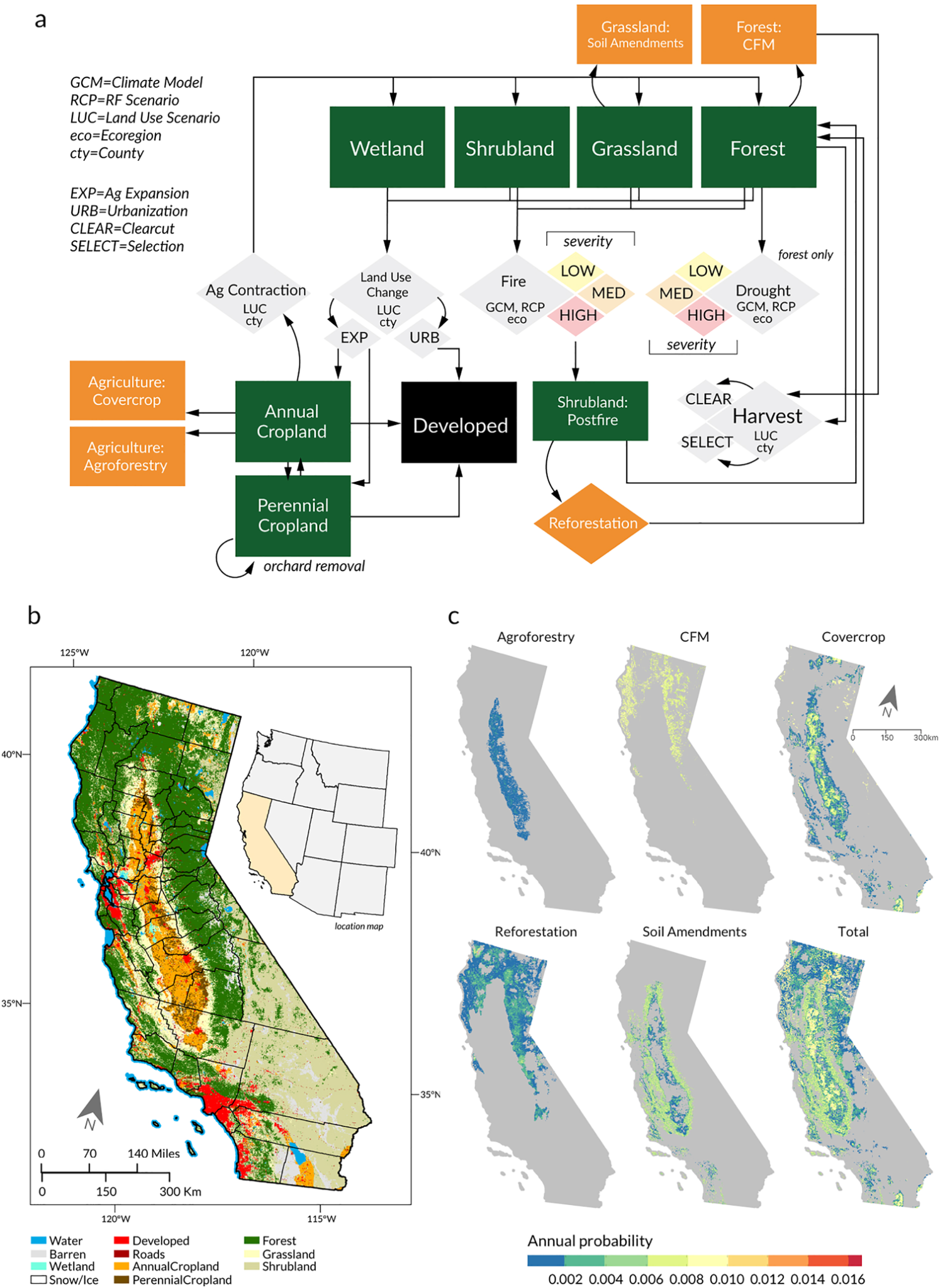November 3, 2023 | Scientific Reports |
Introduction: Natural climate solutions (NCS, also known as Nature Based Solutions), such as land conservation, restoration, and management practices and policies, are intended to reduce emission of greenhouse gases or increase the biological sequestration of CO2. An private sector scientist and founder of Salo Science, Inc. joined forces with governmental agencies and NGOs in assessing the potential of biological climate mitigation from NCS for the State of California, USA.
Key findings: A framework for evaluating NCS in terms of carbon storage stability, implementation costs, and overall mitigation potential has been developed. The results indicate in two scenarios, NCS implementation would largely increase net carbon stored, flipping the California from a net source to a net sink by 2050. Even for most severe climate change scenarios in which California ecosystems remaining a net source of carbon emissions, NCS would still provide a strong attenuating effect, reducing land carbon emissions 41–54% by 2100 with total costs of deployment of 752–777 million USD annually through 2050.
Conclusion: Investing in rapid implementation of a mix of NCS interventions would protect ecosystem carbon in the face of climate change driven disturbances.
Read more: Natural climate solutions provide robust carbon mitigation capacity under future climate change scenarios

Fig. | Model diagram. Conceptual diagram of (a) stateâandâtransition simulation model, (b) map of state classes, (c) maps of average annual probability of transition to one of the land management interventions. Green boxes denote ecosystem state classes, gray diamonds indicate land change transition processes, orange boxes represent intervention state classes, and orange diamonds represent intervention land change transition processes.





